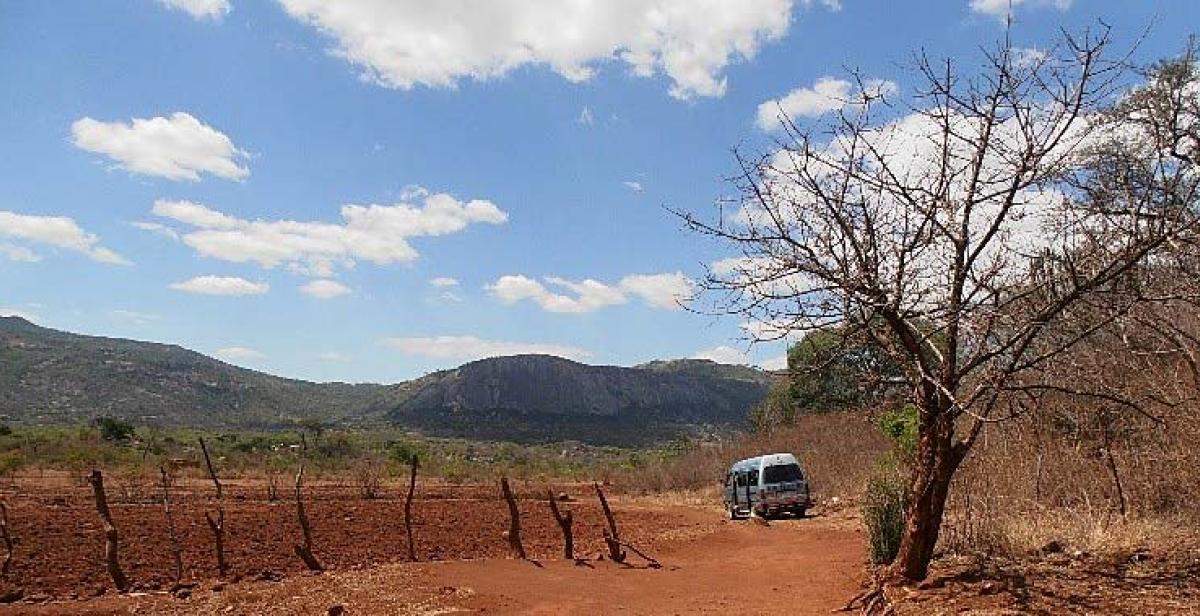We, in the Rowa Runners, are incredibly lucky. While in the UK most of us spent our days locked away in cushy, air-conditioned offices, Zimbabwe offers us a chance to step outside and work in the Great Outdoors. On Tuesday, Wednesday and Thursday each week, we all cram in our (occasionally) trusty Combi, Ebenezer, and leave the office and the city behind.
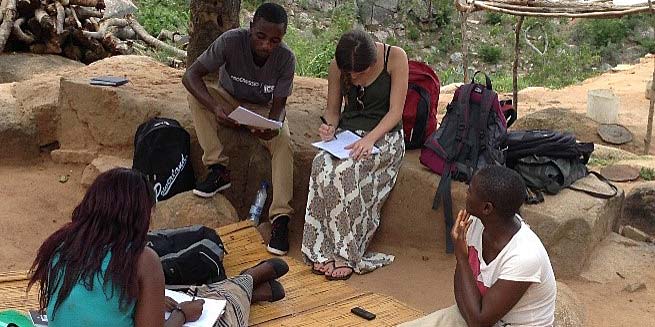
The paved highways don’t last for long, and we’re soon on dirt roads - “road” is a relative term here: most are more pot hole than highway - heading into the rural district of Rowa. Our job there is to visit homesteads, and spread information to local families about Child Rights and Sexual and Reproductive Health. And this is where we’re especially lucky; the homesteads are often kilometres apart. We have many long hikes through some of the most beautiful scenery Zimbabwe has to offer. When we arrive, we split into groups; three volunteers will run the session, while the rest of us do chores; chopping firewood, tilling gardens, chasing goats out of fields – you name it, we’ve done it. It may sound boring, but doing chores never seems so bad while you’re taking in the spectacular views of rural Manicaland.
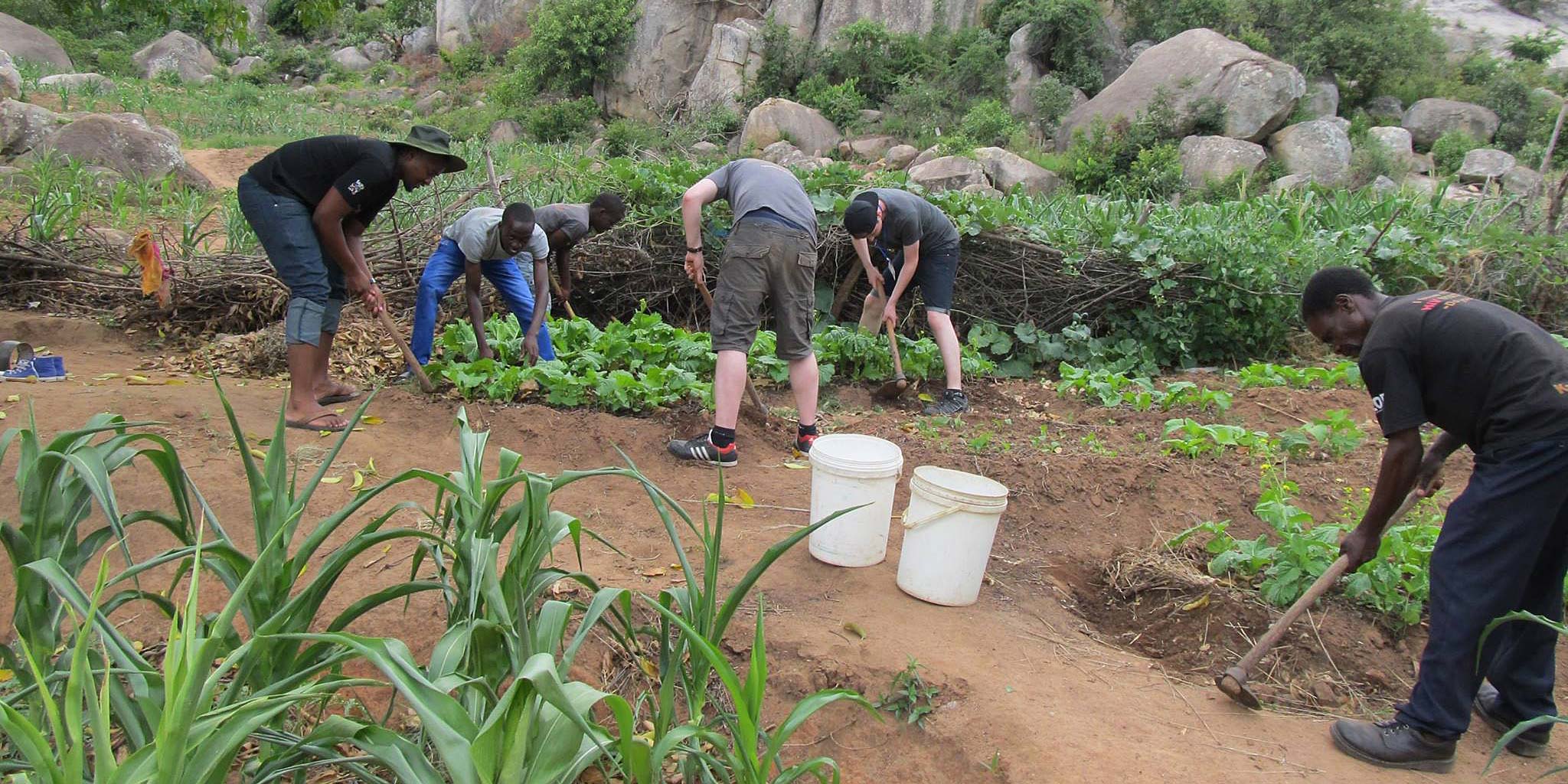
This veritable Garden of Eden does however come with its perils. In Rowa, the well beaten track is often the unbeaten track. We often find ourselves trekking through bushes and between rocks seemingly making our own trail. As the local mentor strides ahead, as if these mountain “paths” are the well-trodden Pennine Way, the rest of us begin to get spread out in order of fitness. Usually the day passes without incident, and the only real problems we face is mild dehydration and the whiter among us turning various shades of pink. Occasionally Nathaniel might startle a cow to make Grace jump (a little team leader fun), or perhaps a particularly protective dog will chase us, but usually animals leave us be. Usually. On one fateful day we learned the wrath of the wilds.
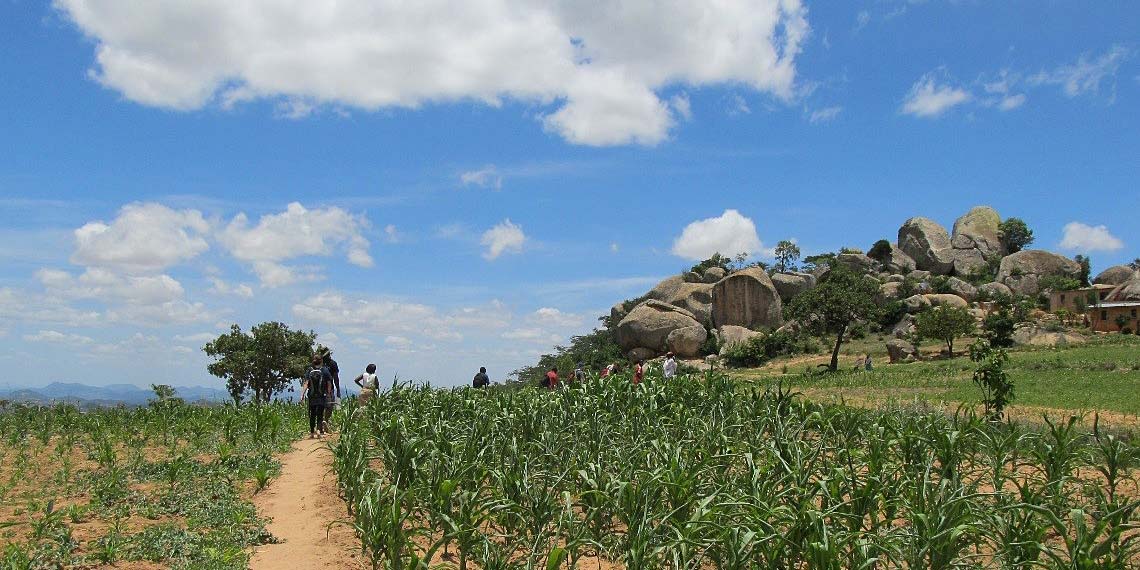
Picture the scene: we’re in a dip with no clear path to the other side. The team separates as each volunteer tries to find the least bushy path up the other side. Several team members cross safely and make it to the other side. A small group of us follow their lead. Here, dear reader, is where the story takes a turn for the worst. The first thing we heard was Team Leader Grace screaming out in pain. Assuming she’d just wandered into a cactus or something I awkwardly chuckled and started to cross. Then I felt it. There was an intense pain in my legs. I look down. I see these huge wasps repeatedly flying into my legs. I got stung four more times. No one else knows what’s happening. As far as they can see me and Grace are doing some weird dance while screaming in pain.
I feel what happened next is best expressed in a step by step “what not to do when wasps attack”. So here for your amusement is the six ways the Rowa Runners deal with wasp assault:
1) Flail wildly
Flail your arms and legs to try and get the stingers away. If this involves violently shoving your Team Leader away, so be it. You can apologise later (sorry Grace!). Suddenly the cap that was meant to be protecting your neck turns into a weapon – who cares about sunburn when they’re being stung by vicious wasps? This may cause confusion in your team, but don’t worry they’ll understand when you start the next response.
2) Curse loudly
These stings really hurt. Suddenly you find yourself speaking in a language purely of expletives and cries of “I’m being stung”. Sure, you imagine your grandmother chastising you with a bar of soap in her hand, but sometimes swearing is just necessary. Being a very loud step, it may cause panic in your teammates, but don’t worry; they should be afraid.
3) Run away
Honestly, this should probably be number 1. Get yourself out of there. Every man and woman for themselves. Find the quickest route to the other side and run for safety. Do not look back, do not pass Go, do not collect £200; there’s no time.
4) Look for sympathy
When the team reconvenes on the other side, assess the damage. Suddenly you find out half the team got hit. Poor TK even got stung on the back of his head. Inform your un-stung teammates just how painful the stinging was. Don’t worry if they laugh, deep down you know they feel your pain. They’re just thankful to have avoided their own.
5) Panic and ready the Epi-pen
Unfortunately, team member Shira is allergic to stings. After the initial confusion and yells of “READY THE EPIPEN!” you’ll hopefully notice she’s not in fact in anaphylactic shock, and realise an antihistamine might be more appropriate. Oh, and a lovely visit to the hospital just to be safe.
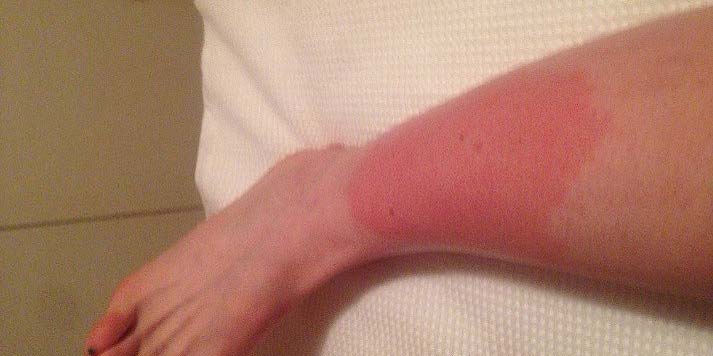
6) Laugh it off
When the pain dies down and the day wears on, you realise how funny the day’s events actually were. Be thankful everyone got away safely and healthy. Realise how much worse it could have been. Maybe consider how it’d make a hilarious blog post.
On returning home, Shira did some research to find out exactly what the blighters were. Apparently they’re called “Mago”, the Zimbabwean equivalent of wasps. All the Rowa Runners whole heartedly advise you to stay as far away from them as physically possible. If you too want to enjoy the beauty of Zimbabwe, watch your surroundings and avoid all bugs - you never know which will sting until it’s too late.
There are two more things I want you to take from this piece before I sign off. Firstly, ICS placements are not office jobs. Don’t expect it to be like your regular job - placement comes with some amazing benefits, but also some risks. Finally and most importantly, don’t be allergic to anything. Please remember it’s not just your own health you’re risking - your teammates’ collective heart may stop beating out of stress. Tozoonana.
Written by ICS volunteer James Bell


